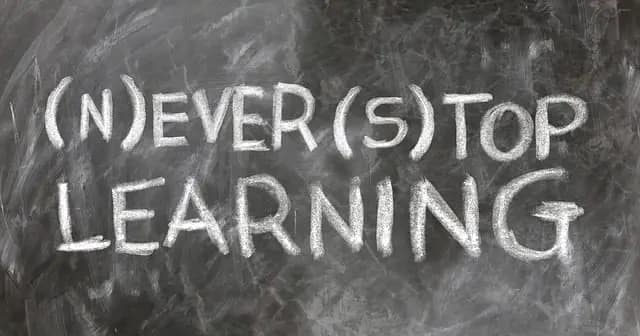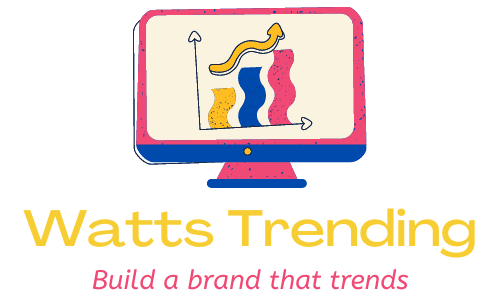
Some of the links in this post are affiliate links, which means I may earn a small commission at no extra cost to you if you make a purchase. Your support helps keep this blog running, and I only recommend products I believe in. Thanks for being a part of this community! Here's how it works.
Want to start a blog? If you’ve been considering starting a blog but haven’t taken the plunge yet, now is the time to do it. In today’s digital age, blogging has become an essential tool for personal and professional growth. Whether you want to build your online presence, connect with like-minded people, or establish yourself as an expert in your field, starting a blog can help you achieve your goals. This ultimate beginner’s guide to blogging will show you why starting a blog today is so important and how to get started.
Definition:
So what exactly is a blog? It’s a type of website or online platform where an individual or a group of people share their thoughts, experiences, and expertise with the world through written content. With blogs, you can write articles, essays, or posts on a variety of topics, such as personal anecdotes, opinion pieces, how-to guides, reviews, and more.
But why is it so important for beginners to start a blog today? Here are some of the key reasons:
Express Yourself
First and foremost, blogging provides a platform for you to express yourself. It’s an opportunity to share your ideas, opinions, and creativity with a global audience, and connect with people who share your interests and passions. By starting a blog, you can unleash your creativity and inspire others with your unique perspective.
Build Your Online Presence
Another important reason to start a blog is to build your online presence. In today’s digital age, having an online presence is crucial for personal and professional success. By creating high-quality content and building an audience, you can establish yourself as an authority in your field, showcase your skills and expertise, and build your personal brand.

Learn New Skills
Blogging can also be a great way to learn new skills and develop your talents. Writing, research, and marketing are just a few of the skills that you can hone through blogging. As you gain more experience and improve your writing, you can even explore new topics and expand your horizons.
Make Some Extra Money
Finally, blogging can be a lucrative source of income. By creating valuable content, building an audience, and partnering with brands, you can turn your blog into a profitable business. Whether you want to supplement your income or work for yourself full-time, blogging can be a viable option.
In short, starting a blog today can be a powerful tool for personal and professional growth. It can help you express yourself, build your online presence, learn new skills, and even make money. So what are you waiting for? It’s time to start your blogging journey today.
Getting Started with Blogging:
Now that you know why starting a blog is important, let’s dive into the practical steps you need to take to get started. Follow these simple tips and resources, and you’ll be well on your way to creating a successful blog.
- Choose a Platform and Domain Name:
The first step in starting a blog is choosing a blogging platform and domain name. Some popular blogging platforms include WordPress, Blogger, and Wix, among others. Each platform has its pros and cons, so be sure to do your research and choose the one that best fits your needs.
Platforms
WordPress:
Pros:
- Most popular blogging platform, powering more than 40% of all websites on the internet.
- Offers a wide variety of customizable themes and plugins to help you design and manage your blog.
- Provides powerful SEO tools and features that can help your blog rank higher in search engine results.
Cons:
- Can be more complex and difficult to use for beginners.
- Requires web hosting and domain registration, which can add to the overall cost of running a blog.
- You’ll need to handle all the technical aspects of managing your blog, including security, backups, and updates.
Blogger:
Pros:
- Owned by Google, making it easy to integrate with other Google products like AdSense and Analytics.
- Offers a simple and user-friendly interface, making it easy for beginners to get started.
- Provides free web hosting and domain registration, which can help keep costs low.
Cons:
- Offers limited customization options compared to other platforms.
- Lacks some of the advanced features and functionality of other platforms.
- Doesn’t have as strong of a community or plugin ecosystem as other platforms.
Wix:
Pros:
- Offers a drag-and-drop website builder that makes it easy to design and customize your blog.
- Provides a wide variety of templates and design options to choose from.
- Offers free web hosting and domain registration, making it easy and affordable to get started.
Cons:
- Can be more limited in terms of customization options compared to other platforms.
- Has fewer SEO features and tools compared to other platforms.
- Can be more expensive if you need to upgrade to a premium plan for additional features.
Ultimately, the best blogging platform for you will depend on your specific needs and goals. Be sure to research and compare the different platforms to find the one that best fits your needs.
Domain Name Registration and Web Hosting
Once you’ve chosen a platform, you’ll need to choose a domain name for your blog. A domain name is the web address that people will use to access your blog. NameCheap, Bluehost, Hostinger, and other domain registrars such as GoDaddy offer affordable and reliable domain name registration services.
Next, you will need to focus on choosing the best web hosting provider for your blog. When it comes to blogging, there are several web hosting providers that are particularly well-suited to bloggers. Two of the most popular hosting providers for bloggers are Bluehost and Hostinger.
Bluehost
Bluehost is a web hosting company that offers a variety of hosting plans, including shared hosting, VPS hosting, and dedicated hosting. They are particularly well-known for their WordPress hosting, which is optimized for running WordPress sites. In fact, Bluehost is one of the recommended hosts by WordPress.org, making it a great option for bloggers who use WordPress as their blogging platform.
Hostinger
Hostinger, on the other hand, is a web hosting company that offers fast and reliable web hosting services at an affordable price. They provide a user-friendly interface and easy-to-use tools for managing your website, making it a great option for beginners or anyone looking for an easy-to-use web host. Hostinger also offers a variety of hosting plans, including shared hosting, VPS hosting, and cloud hosting, making it easy to scale your website as it grows.
Both Bluehost and Hostinger are great options for bloggers looking to start their own blogs. They offer reliable and affordable hosting plans, as well as user-friendly interfaces and easy-to-use tools to help you get started with your blog. So, if you’re looking for a reliable and affordable hosting provider for your blog, be sure to check out Bluehost and Hostinger.
NameCheap:
Pros:
- Offers affordable web hosting and domain registration services.
- Provides user-friendly interfaces and easy-to-use tools for managing your website.
- Provides a variety of hosting plans, including shared hosting, VPS hosting, and dedicated hosting.
Cons:
- Customer support can be slow and unresponsive at times.
- Offers fewer features and resources compared to some of the larger hosting providers.
- Can be more difficult to scale your website as it grows.
Bluehost:
Pros:
- Offers a wide range of hosting plans to fit different needs and budgets.
- Provides excellent customer support and service.
- Offers a user-friendly interface and one-click WordPress installation.
Cons:
- Can be more expensive than some of the other hosting providers.
- May experience slower load times compared to some of the other hosting providers.
- Can be overwhelming for beginners with its many features and options.
Hostinger:
Pros:
- Offers fast and reliable web hosting services at an affordable price.
- Provides a user-friendly interface and easy-to-use tools for managing your website.
- Provides a variety of hosting plans, including shared hosting, VPS hosting, and cloud hosting.
Cons:
- Offers limited customer support compared to some of the larger hosting providers.
- May not be the best option for high-traffic websites or resource-intensive applications.
- Some users may find the interface to be more basic compared to other hosting providers.
Note that I personally use Hostinger and NameCheap I’ve found them to be great options for my blogging needs. They are affordable, reliable, and easy to use, making them a great option for beginners or anyone looking to start a blog without breaking the bank.

2. Design Your Blog:
Once you’ve chosen your platform and domain name, it’s time to design your blog. Most blogging platforms offer a variety of themes and templates that you can use to customize the look and feel of your blog. If you’re not comfortable with designing your blog yourself, you can always hire a freelance designer or use online tools like Canva to create a custom design.
- Create Content:
With your blog set up, it’s time to start creating content. Choose a niche or topic that you’re passionate about and start writing blog posts that are informative, engaging, and useful to your readers. Use keyword research tools like Google Keyword Planner to find popular topics and phrases that people are searching for.
- Promote Your Blog:
Once you’ve published your blog posts, it’s important to promote your blog to reach a wider audience. You can promote your blog through social media platforms like Twitter, Facebook, and Instagram, as well as by guest posting on other blogs in your niche. Email marketing and search engine optimization (SEO) are also effective ways to promote your blog and build your audience.
Getting started with blogging is easier than you think. By following these simple tips and using resources like NameCheap, Bluehost, Hostinger, and others, you can create a successful blog that helps you achieve your personal and professional goals. So, what are you waiting for? Start your blogging journey today!

Building an Audience for Your Blog
Now that your blog is live, it’s time to start building an audience. These tips will help you grow your readership:
Firstly, know your audience. Understand their interests and needs so you can create content that resonates with them. This will help you keep readers coming back for more.
Secondly, create quality content. Your content should be informative, engaging, and well-written. It should also be original and provide value to your readers. Quality content will keep your readers engaged and coming back for more.
Thirdly, promote your blog. Social media, email marketing, guest posting on other blogs, and paid advertising are all great ways to promote your blog and reach a wider audience.
Lastly, engage with your readers. Respond to comments on your blog, engage with your readers on social media, and build relationships with your audience. This will help you build a loyal following and keep your readers coming back for more.
By following these tips, you can start building an audience for your blog and sharing your ideas and expertise with the world. Remember, building an audience takes time and effort, but the rewards are well worth it.

Monetizing Your Blog
While starting a blog is a great way to share your ideas and expertise with the world, it can also be a source of income. Here are some ways to monetize your blog:
Advertising:
Firstly, Displaying ads on your blog can generate income, especially if you have a large readership. You can use platforms like Google AdSense to place ads on your site and earn money when readers click on them.
Affiliate Marketing:
Next, you can recommend products or services to your readers and earn a commission for each sale made through your unique affiliate link. Many companies offer affiliate programs, including Amazon and Clickbank.
Sponsored Content:
You can work with brands and companies to create sponsored content that promotes their products or services. This can be a lucrative way to monetize your blog, but it’s important to disclose sponsored content to your readers.
Digital Products:
Last, but not least, you can create and sell digital products like ebooks, courses, and webinars. This is a great way to monetize your expertise and provide value to your readers.
Of all the monetization methods for blogging, digital products tend to be the most effective for those looking to turn their blog into a full-time income. Digital products such as eBooks, courses, and webinars can be created once and sold repeatedly, making them a passive income source. Plus, digital products allow bloggers to showcase their expertise and provide value to their readers in a more comprehensive way than advertising or affiliate marketing. While creating and selling digital products requires more effort upfront, it can ultimately lead to a sustainable income and the ability to turn your blog into a successful business.
Remember, monetizing your blog takes time and effort. You need to build a strong readership and establish yourself as an authority in your niche. But with persistence and hard work, you can turn your blog into a profitable venture.
Additionally, monetizing your blog can provide you with a source of income while doing something you love. Consider these options and choose the ones that align with your goals and values. And don’t forget, providing value to your readers should always be your top priority.
Consistency is Key
One of the most important aspects of successful blogging is consistency. This means creating and publishing content on a regular basis. Whether you choose to publish weekly, bi-weekly, or even daily, it’s important to establish a schedule and stick to it.
Why is consistency so important?
For one, it helps you build a loyal readership. When readers know when to expect new content from you, they’re more likely to return to your blog and even subscribe to your newsletter. Consistency also helps you establish yourself as an authority in your niche. By consistently sharing your knowledge and expertise, you can build a strong online presence and attract new readers.
Consistency also helps with search engine optimization (SEO). When you publish new content regularly, search engines like Google will recognize your site as active and relevant. This can improve your rankings in search results and drive more traffic to your blog.
Of course, maintaining consistency can be challenging, especially when life gets in the way. But with planning and time management, it’s possible to stay on track. Consider creating an editorial calendar to plan your content in advance, and use scheduling tools to ensure your content is published on time even when you’re busy.
In conclusion, consistency is key to successful blogging. By establishing a regular publishing schedule, you can build a loyal readership, establish yourself as an authority, and improve your SEO. So, commit to a schedule and stick to it – your blog and your readers will thank you for it.
Conclusion
Blogging can be an incredibly rewarding experience, whether you’re doing it as a hobby or as a way to build a business. By starting a blog, you can share your knowledge, connect with others who share your interests, and even make money online.
In this ultimate beginner’s guide to blogging, we’ve covered the basics of starting a blog, from choosing a platform and hosting provider to building an audience and monetizing your content. We’ve also touched on the importance of consistency in creating a successful blog.
If you’re interested in learning how to start your blog step-by-step read my guide.
Remember, starting a blog can be intimidating, but with the right tools and guidance, anyone can do it. So, if you’ve been considering starting a blog, there’s no better time to start than today. Follow the steps outlined in this guide, and you’ll be well on your way to building a successful blog that you’re proud of. Happy blogging!
